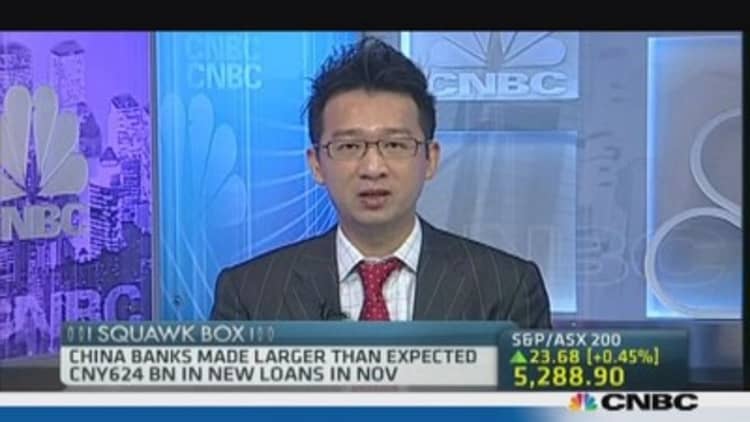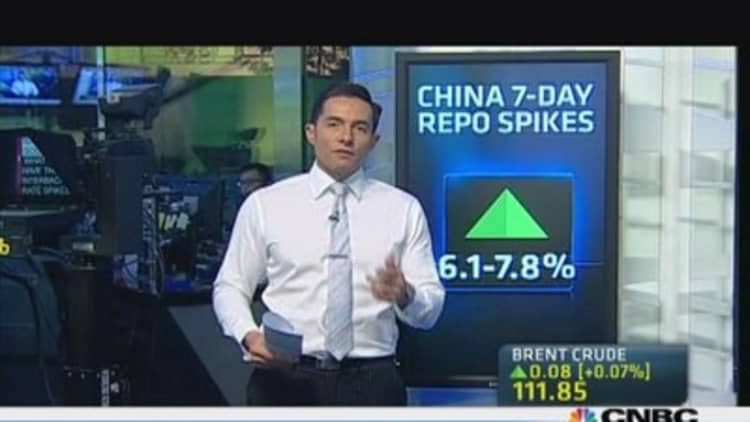China banks are trading at bargain basement valuations, but analysts can't agree on whether they're cheap or just crummy.
The sector just got even cheaper, with Hong Kong and China listed bank shares falling around 5.5-7.3 percent over the past two weeks as interbank rates spiked higher on a seasonal liquidity squeeze, before posting a slight recovery Tuesday as rates eased.
The performance of the China bank stocks can sway the entire market, with the financial sector taking a more than 34 percent weight in the MSCI All China index.
(Read more: Keep an eye on China: Dennis Gartman)
Some analysts are skeptical of the banks' prospects amid concerns not just that bad loans may rise as economic growth slows, but also on how big the bad debt problem might be.
"Everyone is pretty much in agreement that the provisioning they report is on the low side. But nobody knows exactly how much it is," said Hartmut Issel, chief investment officer for Asia Pacific at UBS Wealth Management.
(Read more: China shares may be cheap, but they could get cheaper)
The question came into sharper focus earlier this month when China Citic Bank said it would seek shareholder approval to increase its write-offs to around 5.2 billion yuan, or around $860 million, spurring concerns over whether the entire sector's loan quality may be slipping.

While Citic's nonperforming loans are among the worst for mid-sized China banks, it isn't clear if that's because the bank is more proactive in writing down loans. Citic was China's 12th largest bank by asset size at the end of 2012, according to data from S&P.
"When you come closer to a situation where you can gauge or that the black box risk is visibly receding, then you can grant a higher valuation" to the sector's stocks, Issel told CNBC. He expects signs the government is pressing ahead with planned reforms for the sector can spur a re-rating.
Others disagree.
"Reform comes with a huge cost of dislocation in the real economy," said Hao Hong, managing director for research at Bank of Communications.
(Read more: Place your bets: China or Japan?)
While many banks are trading below book value – Morgan Stanley puts the average at around 0.8 times 2014 book value – Hong noted the sector traded at even lower valuations of around 0.5 times during the financial crisis. "Valuation can go lower from here," he told CNBC, citing earnings concerns.
"The short-term interest rate squeeze is going to have an impact on the banks' profitability," he said.

In addition, "the bad loan provisions or bad loan estimates on many banks' balance sheets are probably underestimated, so we will see more charges on the P&L (profit and loss statement) of many of the banks," Hong said.
(Read more: Is it time to get over your fear of US-listed Chinese stocks?)
"The NPL (nonperforming loans) is going to rise in the coming years because of the economic slowdown," he said.
Some are more sanguine on the banks' earnings outlook, but don't see much upside ahead for the shares.
After raising its economic growth forecast for China, Nomura said it expects the bank stocks to find a floor as the improved prospects help to ease concerns about asset quality.
(Read more: Don't sweat the spike in China interbank rates)
But it added, "these shares are likely to be range bound for some time, on structural challenges including rising competition from online financing and rate deregulation."
—By CNBC.Com's Leslie Shaffer; Follow her on Twitter @LeslieShaffer1

